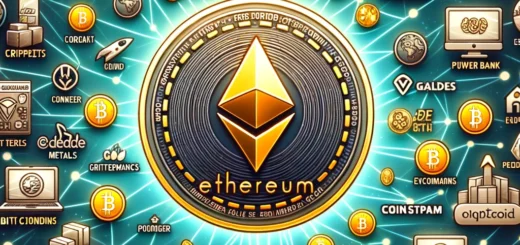What is Ethereum ?
Ether (ETH) is a fundamental element for operating the Ethereum platform and its associated services. It serves as the fuel that powers the network, facilitating the creation and execution of decentralized applications (dApps) and smart contracts on the Ethereum blockchain.
Ether’s Role in Ethereum
Developers building on Ethereum need to pay fees in Ether for deploying their applications and smart contracts. Similarly, users interacting with these applications must also pay transaction fees in Ether. These costs are determined by the amount of computational power required by the network, commonly referred to as “gas.”
Uses and Flexibility of Ether
While Ether was initially created to be used within the Ethereum network, it can also be traded for goods and services with merchants who accept it. This flexibility extends Ether’s utility beyond the Ethereum ecosystem.
Supply Dynamics of Ether
Unlike Bitcoin, which has a fixed supply limit, there is no cap on the total amount of Ether that can be issued. However, there is a restriction on the number of Ethers that can be mined each year. Both Bitcoin and Ether share similarities in their mining processes, storage, and trading on dedicated platforms.
Different Forms of Ether
Ether exists in two main forms: Ethereum (ETH) and Ethereum Classic (ETC). Both ETH and ETC are used similarly to develop and interact with applications and smart contracts on their respective blockchains. While both serve significant roles within their ecosystems, ETH is more widely used and recognized in the cryptocurrency market.
In summary, Ether is essential for the functioning of the Ethereum network, offering a versatile and scalable solution for developers and users alike. Its unique properties and broad acceptance make it a cornerstone of the blockchain and cryptocurrency landscape.



